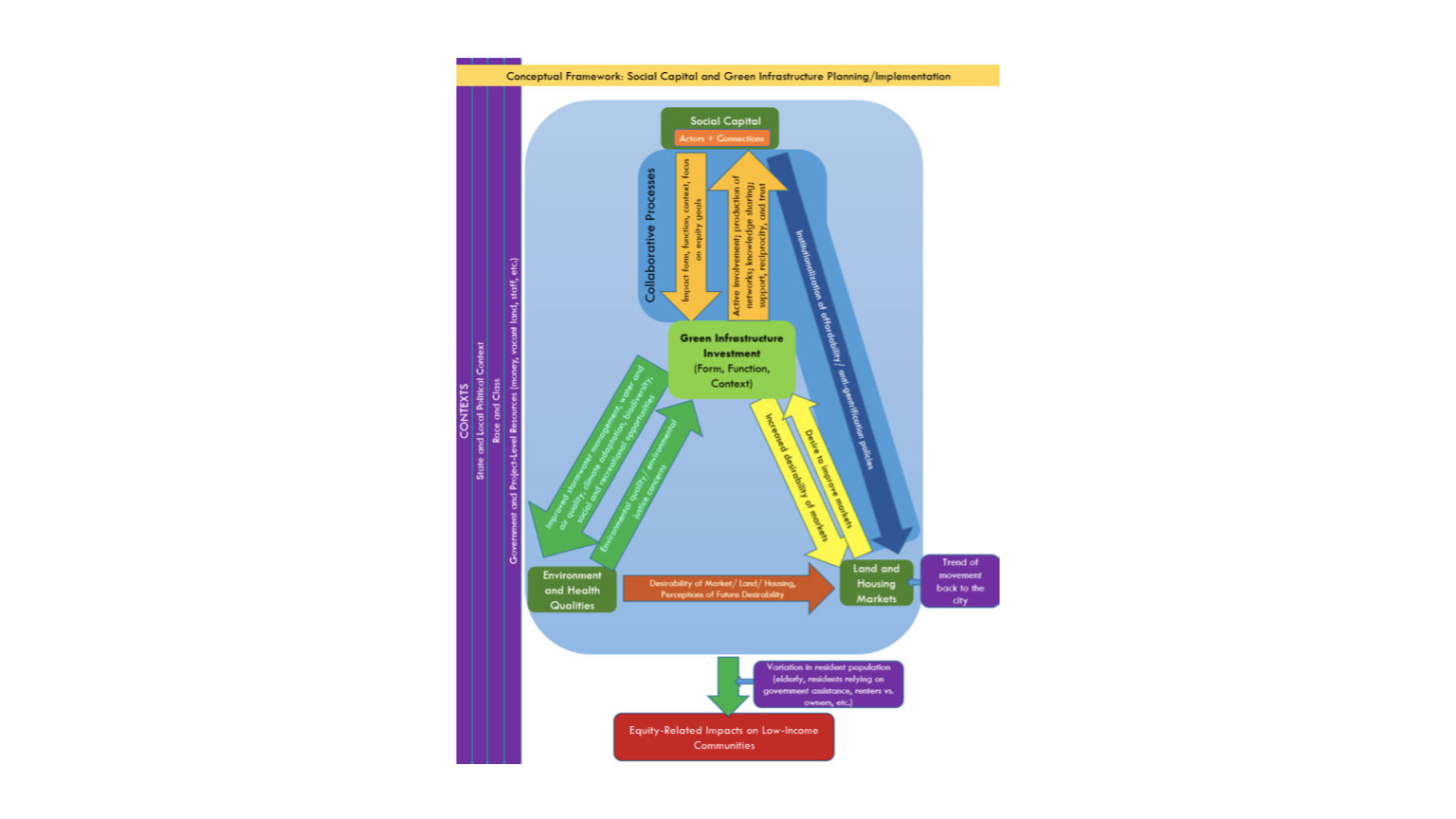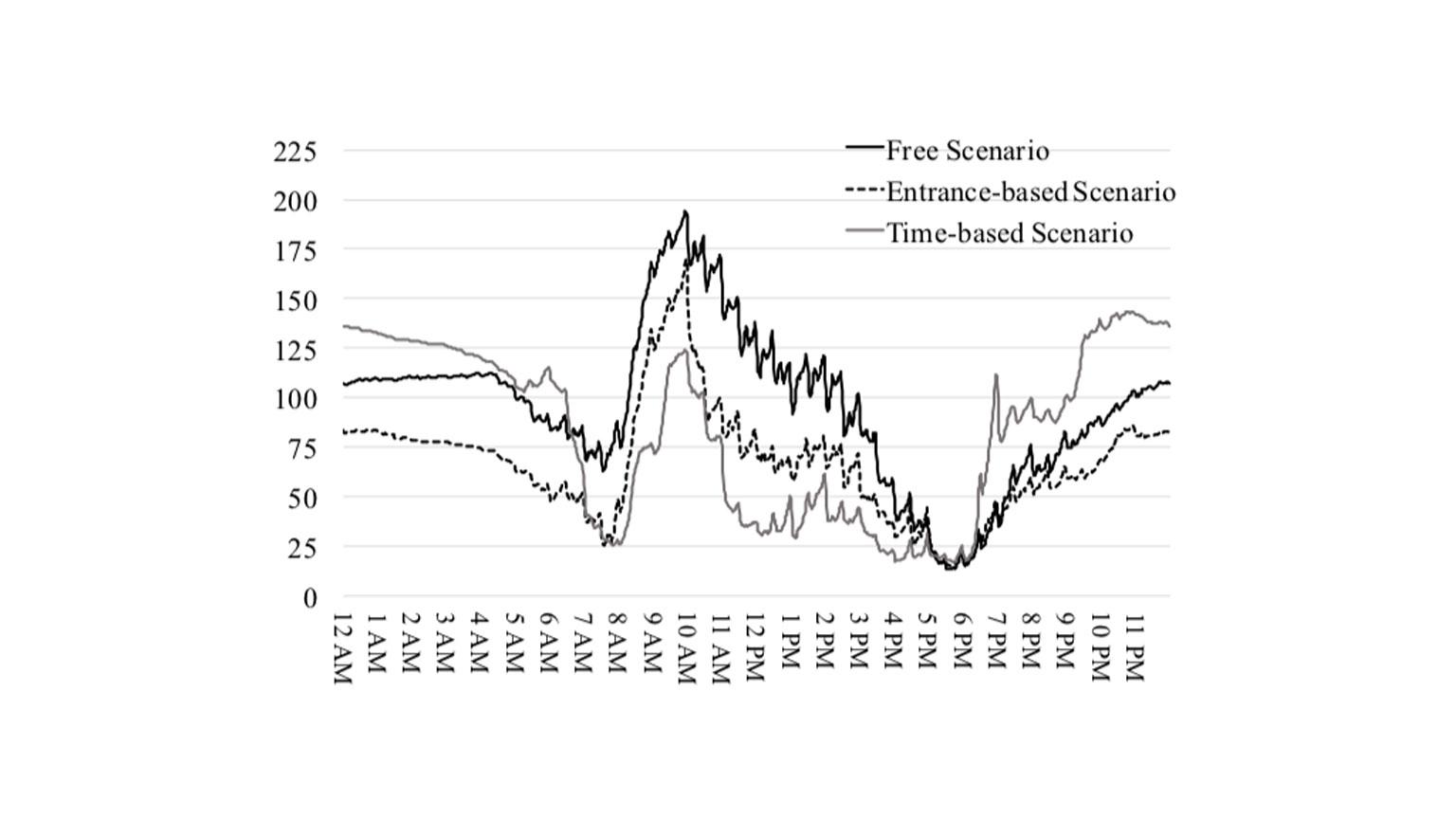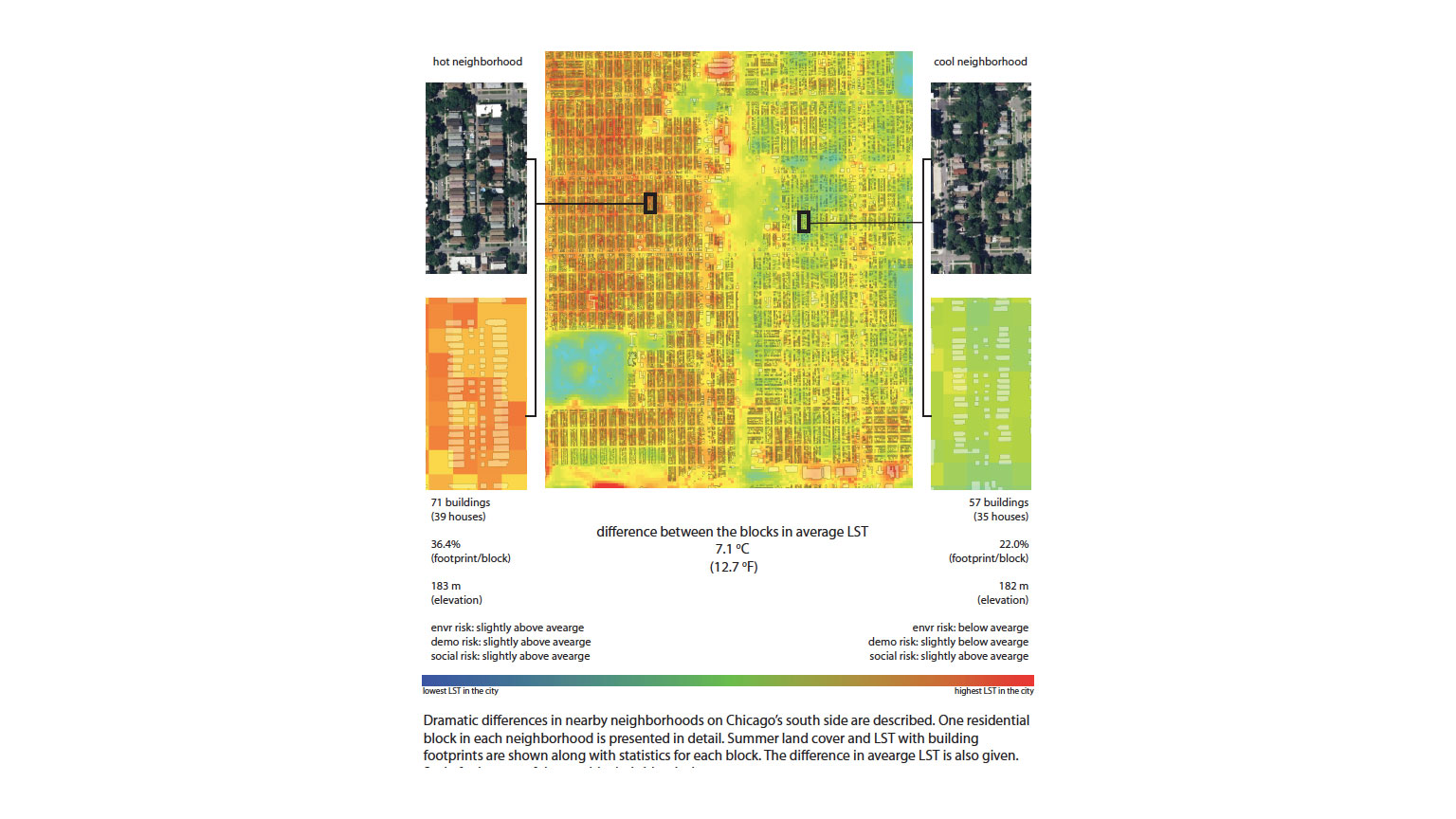
Ph.D. in City and Regional Planning
Doctoral study in city and regional planning combines research and theory in an applied professional field. We link theory to practice, allowing students to explore the most important issues facing rapidly changing urban areas today.
We build socially, economically, and environmentally resilient communities through interdisciplinary study and research. Our doctoral students consistently graduate to top academic and other professional careers. We welcome your interest and inquiries.
The doctoral program has three main components: the coursework (which includes the program core, a major field, and a minor field); the comprehensive exams; and the dissertation.
The program of study requires two years of residency minimum (no fewer than four semesters enrolled for at least six credit hours each, excluding summer) devoted to coursework and other preparation for advancement to candidacy. Successful students demonstrate mastery in these areas and are prepared to pursue upper-level careers in government, business, research, and academia. Full details can be found in the Ph.D. Program Handbook.
Coursework involves a specialized program of study designed by the student and faculty focusing on a major field within city and regional planning, and on a minor field outside the College of Design.
Students complete at least 46 credit hours in their major field, minor field, and the Ph.D. program core requirements, and in various elective courses.
Students complete a minimum of 15 semester-hours of study in their major field, a minimum of 9 hours in their minor field, and a minimum of 19 hours in the program core.
Descriptions of courses offered in city and regional planning and other programs in the College of Design can be found in the Institute’s course catalog.
Upon admission, each Ph.D. student chooses a major area of study. Any change to the major requires review and approval by the Ph.D. faculty.
To meet the major requirement, students must have satisfactory performance (B or better letter grade) in courses composing not fewer than 15 credit hours. The student’s Advisory Committee may require other courses within the College or other units within the University System of Georgia consistent with the student’s expressed interest in her selected field of concentration.
The composition of chosen courses should provide a full background and preparation in both the substance of the field of study, and appropriate methods of inquiry and analysis.
Examples of majors pursued by doctoral students in the School of City and Regional Planning include:
- Urban climate change management
- Built environment and transportation planning
- Equity and social justice planning
Students choose a minor to demonstrate competence and inquiry in an area of study related to, but outside of, the School of City and Regional Planning.
To meet the minor requirement, students must have satisfactory performance (defined as a B or better letter grade) in courses composing not fewer than 9 credit hours.
Examples of minors outside the School of City and Regional Planning include:
- Regional economics
- Public health
- Water resources management
The core course requirement provides students with a basic knowledge of planning theory, regional theory, and research design and methods.
The Ph.D. seminars acquaint students with questions, methods, and paradigms of research and with the modes of scholarship and pedagogy associated with the city and regional planning field.
Requirements include:
- Advanced Planning Theory (three credit hours)
- Advanced Urban and Regional Development Theory (three credit hours)
- Quantitative Research Design and Methods (three credit hours)
- Qualitative Research Design and Methods (three credit hours)
- Ph.D. Foundations Seminar (one credit hour)
- Ph.D. Planning Seminar (one credit hour each year)
Once students have completed their coursework, with the exception of on-going attendance in Seminar in Advanced Research Design and Methods, they are ready to take the comprehensive examinations.
Students are tested in five areas: the student’s major and minor fields, and three core area exams in planning theory, regional economic theory, and research design and methods. Core comprehensive exams can be waived by earning a letter grade of ‘A’ in a core course.
The examination process includes both written and oral testing of a student’s mastery of the subjects. Upon successful completion, the student moves on to the dissertation phase of the program.
The doctoral dissertation is a written piece of original scholarship that represents a significant new perspective or contribution in the candidate’s chosen field of study. The dissertation must be relevant to the field of planning, and either an addition to the fundamental knowledge base in the field of study or a new and better interpretation of facts already known. It must demonstrate that the candidate possesses powers of original thought, talent for research, understanding of theory and methodology, and ability to organize and present findings.
All application materials are submitted using the Georgia Tech Graduate Studies and Admissions Online System. Applications for admission are due by January 15. In most cases, students are accepted for and enter the program in the Fall semester.
Applicants admitted to the PhD Program normally will have completed the requirements for the Master of City and Regional Planning (MCRP), or a related Masters degree program. Students from allied fields are also encouraged to apply. In exceptional cases, students with a Bachelors degree only may be accepted directly into the PhD Program but will be required to complete the Masters in City and Regional Planning degree before advancing to candidacy for the PhD degree. PhD students are eligible for an accelerated MCRP curriculum, as outlined in the Ph.D. Program Handbook
Application materials:
Application Forms
Application Fee.
Georgia Tech offers application fee waivers to qualifying applicants. Comprehensive information on whether you qualify for the Institute-sponsored application fee waiver program and how to request one if you do is available here. The School of City and Regional Planning is additionally offering a limited number of department-sponsored application fee waivers to applicants who do not fall in the waiver categories described; If paying the application fee poses an undue financial burden to you and you do not qualify for an Institute-sponsored fee waiver, you may apply to be considered for a SCaRP departmental application fee waiver by completing this form before December 1st.
Three Letters of Recommendation
Examples of previous research and written works
Official transcripts from all previously attended institutions of higher learning
Statement of Purpose
Describe what you have done to prepare yourself for study in a PhD Program.
Why have you chosen to apply to the PhD program in City and Regional Planning at Georgia Institute of Technology?
What area of planning research is of particular interest to you? How might you explore this interest as a doctoral student at Georgia Tech?
Detail your academic and research goals and career plans.
Personal Biography Form
Graduate Record Examination (GRE) scores is required for admission of this program, with a minimum score of 150 (Verbal), 150 (Quantitative), and 4.0 (Analytical Writing).
Proof of English proficiency for applicants whose first language is not English: Test of English as a Foreign Language (TOEFL). TOEFL scores of 620/261/102 or higher for the test (paper, computer, and internet tests respectively) are expected. Other evidence of English proficiency, such as provided in writing samples or oral interviews, may also be considered in determining language proficiency. Applicants having completed a Bachelors or Masters degree at a US University are not required to submit TOEFL scores. OR International English Language Testing System (IELTS) with a minimum score of 7.5. For complete outline of the English proficiency requirement and ways to get exemptions from testing, please see https://grad.gatech.edu/english-proficiency
The SCaRP PhD program typically makes fully funded offers for the first four years of the program. Students receive a tuition waiver and monthly stipend while working 15-20 hours per week as graduate research assistants, as co-op students with local partners, as TAs or instructors for our graduate and undergraduate offerings. The College of Design 2023-2024 stipend rates are:
- $2,235 working at 15 hours per week
- $2,689 working at 20 hours per week
The institution guidelines for stipends can be found here: Stipends for Graduate Assistantships | Policy Library.




